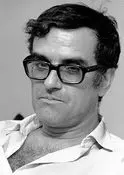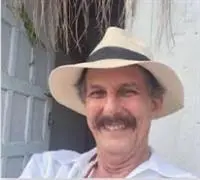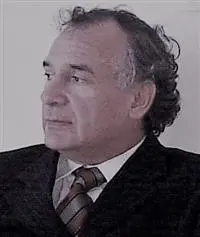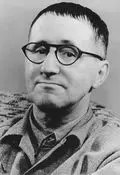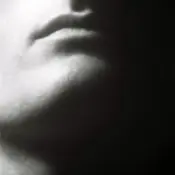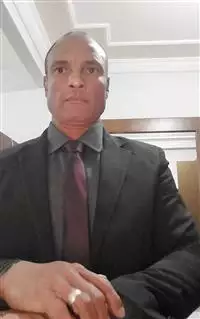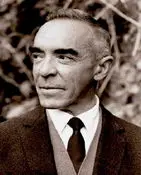

T. S. Eliot
Thomas Stearns Eliot foi um poeta modernista, dramaturgo e crítico literário inglês nascido nos Estados Unidos, recebeu o Prêmio Nobel de Literatura de 1948. Eliot nasceu em St.
1888-09-26 St. Louis, Missouri, EUA
1965-01-04 Kensington, Kensington e Chelsea, Reino Unido
26582
2
2
Prémios e Movimentos
Nobel 1948Alguns Poemas
Videos
Livros
T. S. Eliot documentary
10. T.S. Eliot
The Waste Land (TS Eliot) read by Alec Guinness
T.S. Eliot's "The Waste Land" documentary (1987)
T.S. Eliot reads: The Waste Land
A Reader's Guide to T.S. Eliot's "Four Quartets"
T S Eliot reads his Four Quartets
Poetry: "The Love Song of J. Alfred Prufrock" by T.S. Eliot (read by Tom Hiddleston) (12/11)
Part 2 | MCQs linguistics and language#shortvideo#shorts#short#shortsvideo#shortsfeed
The Love Song Of J. Alfred Prufrock. T.S. Eliot. Read by Anthony Hopkins
Alec Guinness reads Four Quartets by TS Eliot
T.S. Eliot - BBC Arena Portrait 1/6
T. S. Eliot - Four Quartets (Read by Jeremy Irons)
The Waste Land by T. S. Eliot | In-Depth Summary & Analysis
T.S. Eliot Reads: The Love Song of J. Alfred Prufrock
The Hollow Men by T.S. Eliot (read by Tom O'Bedlam)
Cats was even weirder than you thought
Poetry: "Journey of the Magi" by T. S. Eliot (read by Hugh Laurie)
T S Eliot Part1 | E@6 Videopedia | TES | Kalyani Vallath | NTA NET, K SET, G SET, WB SET, GATE
Understanding Poetry | The Waste Land by T.S. Eliot
How to Structure an Essay on T.S. Eliot
T.S. Eliot biography || poet and writer
Poetry and Exile: T. S. Eliot, 'Four Quartets' - Professor Belinda Jack
The Love Song of J. Alfred Prufrock by T. S. Eliot | Summary & Analysis
11. T.S. Eliot (cont.)
"The Hollow Men" by T.S. Eliot |read by Jeremy Irons|
Marlon Brando - The Hollow Men - How Cultures Die - T S Eliot
T. S. Eliot's Four Quartets – Ralph Fiennes – Official Trailer
Four Quartets: "Burnt Norton" by T. S. Eliot (read by Ralph Fiennes)
The Conversion of T.S. Eliot - Lord Harries of Pentregarth
'The Love Song of J. Alfred Prufrock' by T.S. Eliot - Key Themes and Analysis
The Works of T.S. Eliot 05: The Love Song of J. Alfred Prufrock
Nick Mount on T.S. Eliot's The Waste Land
"The Love Song of J. Alfred Prufrock" by T. S. Eliot (read by Jeremy Irons)
:T.S. Eliot's Four Quartets, read by Jeremy Irons: II. East Coker (extracts of)
"Rhapsody on a windy night" by T. S. Eliot |read by Jeremy Irons|
"The Love Song of J. Alfred Prufrock" by T.S. Eliot |read by Jeremy Irons|
A Summary of The Waste Land by T.S Eliot
T. S. Eliot
Preludes by T.S. Eliot - Key Themes and Analysis
T. S. Eliot - The Waste Land (Jeremy Irons & Eileen Atkins)
The Love Song of J. Alfred Prufrock | T. S. Eliot - Line by Line Analysis
Murder in Cathedral: Play by T. S. Eliot in Hindi summary Explanation and full analysis
"Gerontion" by T.S Eliot |read by Jeremy Irons|
T S Eliot Part 2 | E@6 Videopedia | TES | Kalyani Vallath | NTA NET, K SET, G SET, WB SET, GATE
T.S.Eliot-Brief
Tradition and the Individual Talent by T. S. Eliot in hindi summary
Tradition and the Individual Talent by T.S. Eliot
The Hollow Men by T. S. Eliot - Summary and Line by Line Explanation in Hindi
T. S Eliot |Objective Correlative| Impersonality in Poetry|Dissociation of Sensibility|Criticism
 Escritas.org
Escritas.org


